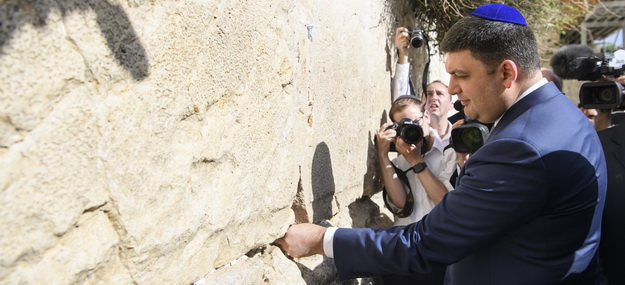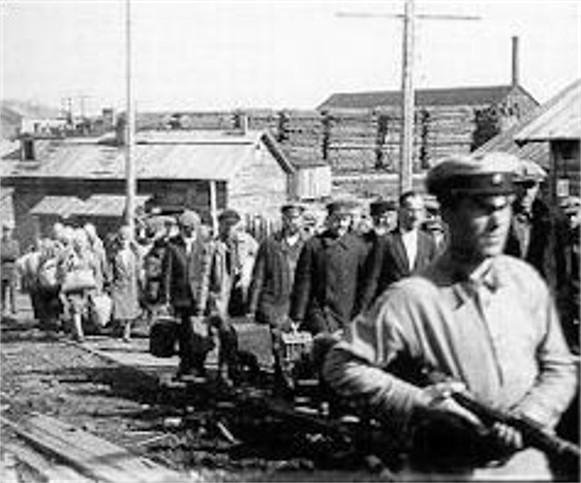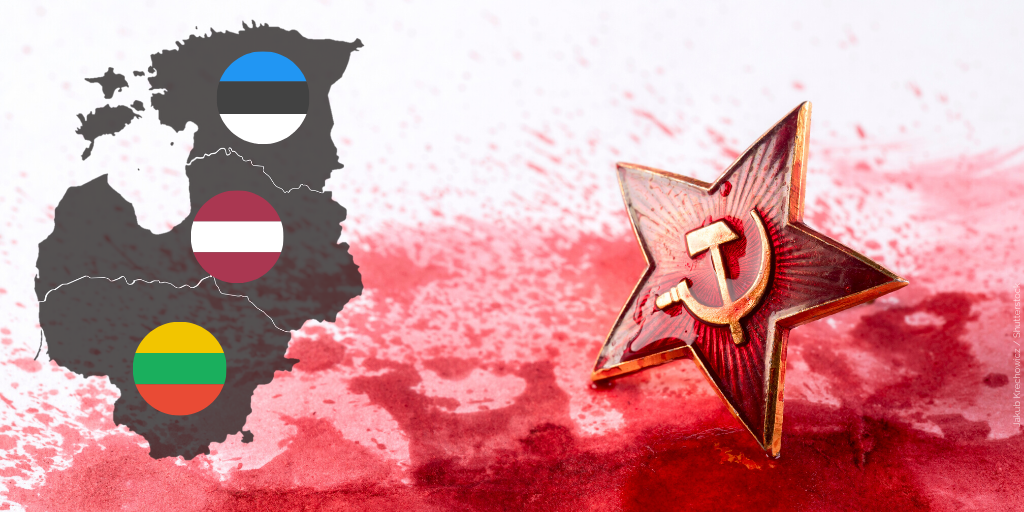Relations between Ukraine and Israel are distant and close at the same time.
As a home for the largest Jewish community in Europe before the World War II, Ukraine was a cradle of Jewish culture and homeland of prominent Jewish artists, religious and political leaders.
Perhaps, there is no other country in the world where so much of the political elite have Ukrainian origins. In Israel, those are presidents and prime ministers Yitzhak Ben-Zvi, Ephraim Katzir, Moshe Sharett, Levi Eshkol, Golda Meir, and the current Speaker of the Knesset Yuli Edelstein.
Following several waves of emigration of Ukrainian Jews after the collapse of the Soviet Union, strong people-to-people contacts have been established between Ukraine and Israel.
Ukraine is also the birthplace of the Hasidic movement, as well as the destination of the annual religious pilgrimage to the grave of rabbi Nachman of Breslov. In its turn, Israel is a permanent pilgrimage destination for Ukrainian Christians.
Since 2012, when Ukraine and Israel abolished the visa regime, the flow of tourists had grown every year, and Tel Aviv remains the top destination from Kyiv's Boryspil airport.
Furthermore, in the last three years, Israel has been increasingly referred to as the “transformational role model” in Ukraine as a country that managed to achieve prosperity amid permanent armed conflict, as well as to ensure self-sufficiency in terms of security.
Israel is one of the top 10 countries named by Ukrainians as role models for Ukraine’s foreign policy.
But the bilateral agenda has its “other side.” In historical terms, it is the heritage of Jewish pogroms, and later the Holocaust, which is associated with Ukraine in the collective memory of the Israelites.
In the political sphere, the two countries seek mutual support on the international arena: Ukraine needs Israel’s assistance to counter Russian aggression, while Israel needs Ukraine’s backing in the confrontation with Palestine. This pursuit for national interests and dependence on the broad geopolitical context do not always allow the two states to consistently remain as allies and sometimes lead to mutual distrust and deterioration of relations. Accordingly, the enemy of Israel is not Russia, but Iran and Hamas.
The usual coordinate system with focus on pro-European vector of development and European values does not work in relations with Israel. Despite being a participant of the European Neighborhood Policy along with Ukraine, Israel’s policy toward the EU is completely different from that of Ukraine. As explained by Israeli diplomats,“we do not claim that Israel is a part of Europe, and we do not want to be a part of Europe; nevertheless, we strive to be as good as Europe.”
The mutual interests of Ukraine and Israel coincide in two areas:
- Voting to support each other in international organizations, especially the UN;
- State politics of memory: while Israel expects Ukraine to recognize the involvement of some representatives of the Ukrainian national liberation movements in the Holocaust, Ukraine expects Israel to recognize the Holodomor as the genocide of Ukrainian people.
Moreover, Ukraine is interested in attracting Israeli investments and import of technology and high standards in numerous areas, from agriculture to defense and security; Israel, in turn, seeks to protect the Jewish community in Ukraine from anti-Semitism.
"Silent support"
Israel is a special partner for Ukraine in the Middle East region. The dynamics of bilateral relations between Ukraine and Israel is higher than similar indicators for other countries in the Middle East and Africa, and even some member states of the European Union.
The event that had probably the greatest impact on foreign policy of Ukraine in the last three years (Russian aggression) has advanced the rapprochement between Ukraine and Israel. However, this is not about solidarity in the fight against a common enemy. Ukraine and Israel have rather found themselves in similar positions on defending their interests on the global scale, as two countries in a state of armed conflict.
Ukraine has been traditionally trying to take a “balanced” stance on the Israeli-Palestinian conflict, without associating itself with any party and opposing another. The reason for this were two opposing “leverages,” a “special partnership” with Israel on the one hand, and the large Arab market on the other. Another factor that has traditionally influenced Ukraine’s policy on the Middle East conflict was the position of the European Union, which Ukraine sought to coordinate with.
On the other hand, Israel sees the Russian-Ukrainian conflict in the context of its own security environment, with its own challenges: from the conflict with the Palestinians to the Iranian nuclear program and the war in Syria. Official Jerusalem considers Russia not as an enemy, but rather as a powerful actor that can deliberately disrupt the balance of power in the region.
According to Israeli sources, such steps as public condemnation or introduction of sanctions against Russia could have existential consequences for Israel, e.g. support for terrorist groups, such as Hamas or Hezbollah.
Official Jerusalem considers Russia not as an enemy, but rather as a powerful actor that can deliberately disrupt the balance of power in the region.
Israel also draws its own lessons from Russian aggression in Ukraine, referring to the failure of the Budapest Memorandum as the precedent for non-compliance with international security guarantees and stressing respectively on the meaninglessness of similar guarantees in case of Israel’s consent to the establishment of a Palestinian state.
The Russian factor also affects the bilateral relations in terms of military and technical cooperation.
Ukraine had repeatedly expressed interest in purchasing Israeli military equipment. However, in 2014, the agreement on purchasing Israeli drones, agreed by the defense institutions on both sides, was blocked by the Israeli Foreign Ministry, as reported by some media - to not irritate Russia.
Despite Ukraine’s further interest in Israeli technologies, close ties between Israeli and Russian armies, as well as the striking similarity between Russian hardware and products by the Israeli Elbit Systems, constrain the potential cooperation.
At the same time, Israel (also in line with its national interests) opposes redrawing its borders and publicly expresses support for the territorial integrity of Ukraine. Israel has closed its honorary consulate in Crimea after its annexation by Russia. Furthermore, after MP Yaakov Margi visited Crimea, the Knesset issued a public statement on the illegality of such actions; later, the MP himself admitted that it was an ill-conceived act.
Moreover, Israel provides assistance in treatment and rehabilitation of Ukrainian soldiers wounded during the conflict in eastern regions, allocates funds for training of Ukrainian doctors in Israel, and helps implement clinical and training programs in Ukrainian military and civilian hospitals.
Voting in the international institutions, mainly the United Nations, is a key challenge for the bilateral relations and one of the main expectations of the two states towards each other.
For instance, Israel did not participate in four of five UN votes on the issues that were critical for Ukraine in 2014-2016.
During the crucial vote on the resolution on Ukraine’s territorial integrity in March 2014, the Israeli representative was absent. While Ukraine has repeatedly rebuked Israel for that incident, for the official Jerusalem this policy is an essence of Israeli “neutrality,” where “abstain” means silent support.
The largest scandal of the last 25 years
Israel expects the same level of support, both silent and public, from Ukraine in the context of votes in international institutions, as the UN resolutions are used as an instrument of constant pressure on Israel by the international community and are usually instigated by Arab states, while the organization itself is known by disproportionately large number of resolutions condemning Israel on its settlement policy in East Jerusalem and the rights of Palestinians compared to any other country.
Ukraine’s position in the vote on the Israeli-Palestinian conflict remains unchanged: Ukraine condemns Israeli settlement policy one that violates international law, and, obviously, after Russian aggression, consistency with this position has become even more vital for Ukraine.
In turn, Israel reacts fiercely to the adoption of such resolutions, which also affects the bilateral dialogue with countries supporting them.
This explains the diplomatic scandal that arose between Ukraine and Israel in late 2016 amid thriving diplomatic relations and on the eve of the planned visit of Ukrainian Prime Minister to Jerusalem.
Following Ukraine’s vote within the UN Security Council in favor of the Resolution #2334 on Israeli settlements in occupied Palestinian territories, Israel in response canceled the visit of Ukrainian Prime Minister Volodymyr Hroysman (ironically, the first Ukrainian Jewish government official slammed by Israel’s doors).
Despite the fact that some commentators view this incident as “the greatest scandal in 25 years of relations between Ukraine and Israel,” as well as its significant media resonance, in fact it is more a lesson of understanding Israeli diplomacy and further development of relations with this state. In the past, Ukraine voted "in favor" of Israel, and future such votes are possible, provided that the respective resolutions are not sensitive for the Ukrainian situation and the consensus among the Western states.
Historical dialogue: from the Holodomor to the Holocaust
Another key point of intersection of the mutual interests of the two states is memory politics. This page of bilateral relations can only be compared with Polish-Ukrainian dialogue in terms of temperature of emotions, and the fact that both sides in each of them are “victim nations,” which, subsequently, complicates the discussion that aims not only at reconciliation but also at identifying the culprits.
Israel’s key demand toward Ukraine is recognition of Ukrainians’ involvement in the Holocaust.
Certain steps in this direction have already been made: during a visit to Jerusalem on 23 December 2015, President Poroshenko apologized for some Ukrainians’ involvement in the Holocaust, and that has not gone unnoticed by Israel.
However, Ukrainian public memory politics (which, ironically, took the Israeli model as an example during Viktor Yushchenko’s presidency) remains a constant irritant to relations with Israel.
One of the first steps of Ukrainian authorities that did not find understanding in Israel was the Hero of Ukraine title granted posthumously to Roman Shukhevych, the commander of the UPA, in 2007. The adoption of the law “On the Legal Status and Honoring the Memory of Fighters for Independence of Ukraine in the XX Century” honoring the memory of OUN and UPA, which Israel considers - with or without merit - to be involved in the extermination of Jews during the Holocaust by Israel, has been also perceived in Jerusalem as an unfriendly act.
Paradoxically, the fact that Israel has its own catastrophe does not facilitate the alignment on this issue, dividing the two countries instead. The philosophy of understanding the Holocaust in Israel is different from understanding any other genocide and lies in the interpretation of the Holocaust as a catastrophe of cosmic proportions and, importantly, a catastrophe without any rational purpose other than the desire for the Jewish people to cease to exist. Therefore, for Israel, recognition of any other genocide would mean “trivialization of the catastrophe.”
The people of Israel know virtually nothing about the Holodomor -it is not studied either in schools or in history departments of Israeli universities. Filling this gap is critical for both Ukraine and Israel in terms of dissemination of knowledge about the tragedy of Ukrainian people and the tragedy of Jewish people who were victims of the Holodomor and further Soviet repressions.
It is noteworthy that certain efforts aimed at the rapprochement between Ukraine and Israel in terms of historical issues are conducted by NGOs, e.g. the Israeli Friends of Ukraine initiative. Last year, this group of Israeli activists held a seminar “No Monument Stands Over Babyn Yar?” dedicated to the anniversary of the tragedy and Ukrainian-Jewish dialogue in Tel Aviv. In September 2017, the group will organize an event dedicated to the Holodomor and the Holocaust, involving Ukrainian and Israeli historians and journalists.
The Ukrainian Jews in Israel and Ukraine
Some half a million immigrants from Ukraine live now in Israel - almost 7% of Israel’s population. However, unlike Ukrainian communities in Western Europe, the Ukrainian immigrants in Israel are not labor, economic, or political migrants, but are repatriates who came to the country as Jews, not as Ukrainians. As a rule, those citizens identified themselves with the “post-Soviet Jews” rather than Ukrainians, and were interested in events happening in the country of their previous residence on the everyday life level only.
However, the situation has changed after Euromaidan and Russian aggression against Ukraine: communities that started to help Ukraine actively appeared in Israel, such as "Israeli Friends of Ukraine,” a volunteer initiative, who organized the treatment of wounded Ukrainians in Israel, trainings for Ukrainian doctors, transfer of donations and humanitarian aid. During three years their activity grew to include public and business diplomacy, for instance, organizing intellectual events on historical issues, cultural festivals “Etnokhutir” and business events.
Israeli society exists in its own “Middle East” coordinate system, which projects the Ukrainian realities on its own challenges. Even the Russian-Ukrainian conflict is interpreted by Israelis by projecting it on their own conflict with Palestine, with the understanding of “aggressor” and “victim” also differing depending on the political sympathies and convictions of every individual.
The threat of Russian propaganda in Israel is also not as acute as in the European Union and post-Soviet space — the Israelis rather see the threat of Arabic propaganda. While Israeli media almost never write about Ukraine and the Russian-speaking Israelis get information from existing Russian channels in Israel, the Ukrainian Jewish community has manged to inform at least a part of Russian-speaking Jews in Israel that Russian media did not reflect the full picture.
Thus, the Jews themselves often prevented playing the “anti-Semitic card” during Euromaidan, the Russian-Ukrainian conflict, and in broadcasting the image of Ukraine abroad in general. In the beginning of March 2014 the Jewish community of Ukraine published an open letter to Vladimir Putin, rejecting accusations of widespread anti-Semitism and xenophobia in Ukraine - a key point of Russian propaganda. Similar positions were expressed by Ukrainian rabbis, including Rabbi Kaminetskyi in Dnipro.
Overall, as noted by Israeli diplomats and representatives of the Jewish community in Ukraine, there is anti-Semitism in Ukraine, but its level is lower than in EU countries such as for example, France, Greece or Poland. As it is emphasized in the report of the informal group monitoring rights of national minorities, the number of incidents of violence motivated by anti-Semitism in the years 2015-2016, after growth in the years 2012-2014, decreased to the minimum (in 2016 one such case was recorded). As for vandalism, there were 19 such incidents recorded in 2016, which also shows a tendency of decrease compared to 2014. Nevertheless, well-timed investigation of such crimes is one of Israel’s key demands to Ukraine. According to the Central Investigation Department of the National Police of Ukraine, investigating authorities during 2016 and beginning of 2017 initiated 17 criminal proceedings for offenses motivated by anti-Semitism.
Despite all the differences, Ukraine and Israel are valuable partners for each other. Particularly, for Ukraine, relations with Israel are a conduit for effective and successful Middle East policies, while for Israel, Ukraine is a valuable (potential or real) ally.

This is a summary of a report which was conducted within the project of the Institute of World Policy “Ukraine’s Foreign Policy Audit.” This project is implemented with the support of the “Think Tank Support Initiative” implemented by the International Renaissance Foundation (IRF) in partnership with Think Tank Fund (TTF) with the financial support of the Embassy of Sweden in Ukraine.
Related:
- Crimea, and why Ukraine could not support Israel
- Forum in Tel-Aviv to kick off Israeli-Ukrainian business Alliance
- Language policy in Ukraine and the experience of Finland and Israel
- Israel opposes sanctions against Russia
- Yanukovych's embezzler is now a citizen of Israel
- How Ukraine counters use of drones by Russian hybrid forces
- Russian-owned Israeli UAV downed in Ukraine
- Unusual Israeli-Russian rapprochement





